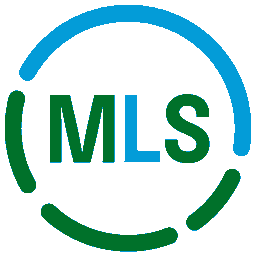
Challenge
The field of home care is probably one that lends itself very well to this paradigm.
Both the caregiver and the patient benefit from having a long-lasting, caring relationship that fits their personality and situation.
The good relationship between the client and the caregiver extends to the circle of relatives and leads to a relationship of trust that calms all parties.
Feeling at ease, they will do their best to preserve this relationship
A successful home care organization must integrate this paradigm into its operations.
The evolution of home care is considerable, and those who can solve the equation of client satisfaction combined with good staff management will be the big winners.
Is it that simple?
Many factors are at play: the medico-social environment, the physical and geographical environment, the type of services and their frequency, as well as cultural elements.

Solution
Assessments conducted by home care organizations, such as the interRAI and diagnoses, help to clarify many of the needs of each client and to clearly project a plan of care and support. These assessments are fine-tuned enough to take into account all physical, psychological and environmental aspects of the client to develop interventions with the appropriate staff. The standards also ensure that the qualifications of the caregivers will be consistent with the services provided.
However, there are other factors that are equally important to the ideal match between client and caregiver and that must be considered when allocating care resources to clients.
This brings us to the specifics such as lifestyle habits, whether the patient is a smoker or does not tolerate smokers, the presence of other family members, the presence of pets, and any other factors that are unique to the client that need to be considered when choosing a caregiver.
Once you have managed all of these criteria and are excited about sending the best caregivers to clients, you will still be faced with the logistical reality of availability and geography. Logistics remain a major challenge and must be managed very efficiently to ensure the right service with the right people, and to ensure that caregivers are happy to work within the time and geographic plans you have set, to stay motivated, which is key to a lasting relationship with the client.
Of course, travel time optimization dimensions are also to be considered, as customer satisfaction goes hand in hand with the financial health of the organization they are dealing with.
You may have to call in several caregivers for a client, depending on the type or duration of the services, and here again, it is advisable to limit the number of caregivers and to ensure that their interventions are regular with the client.
It goes without saying that your teams of caregivers cannot be uniform and must be able to respond to linguistic and cultural expectations such as culinary habits or the type of conversation to avoid, the fact that the client is extroverted or introverted, and all the particularities that will be encountered when taking care of new clients. Nothing can be set in stone in this area, the organization and its staff must be very open-minded and adaptable.
Taking all these aspects into account requires an optimal organization, supported by a highly professional and agile recruitment capacity, and by an information system that meets the challenges.
The latter must be able to resolve the matching and logistical aspects without any particular effort on the part of the back office staff, who must be able to rely on adapted IT tools to suggest the best possible choices, both at the beginning of the care process and over time.

Why Medical Link Services ?
Medical Link Services is one of the players who are integrating this paradigm into their software offering with a 100% web-based healthcare platform that ensures quality services from intake to billing.
Its MedLink solution allows Backoffice teams to rely on a solution that knows how to suggest the best scenarios both in terms of personnel and logistics management.
There is no reason for managers to spend considerable time doing what a digital solution can produce in record time. Management is focused on running the business, on making tactical and strategic adjustments to the changing market.
Efforts are focused on recruiting and retaining caregivers based on objective criteria that reflect the reality of the company’s business, and moreover, in real time.
One of MedLink’s main strengths is its ability to adapt very quickly to the needs of its clients, based on the reality of their market.
The openness of this solution allows all actors to participate in the care process, including the clients, thanks to a very detailed management of roles and a fully secured communication system.
The client’s feedback is an essential element of the proper functioning of the system, he must be a participant in his care, and for this point as well, MedLink facilitates the client’s feedback, directly and indirectly, in complete freedom and security.
Moreover, its ease of use, on any fixed or mobile terminal, anywhere and anytime, facilitates its adoption by caregivers and their management.




